A Parent’s Guide to Supporting a Child Who Stutters
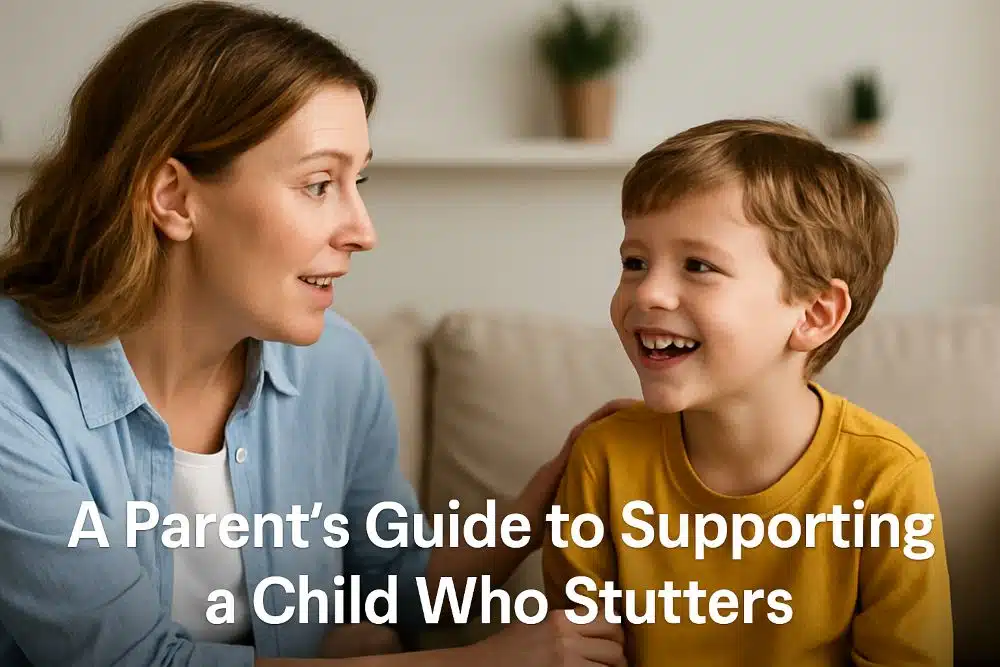
Imagine this: You’re sitting at the dinner table, listening to your little one excitedly tell a story about their day—and you notice they pause, struggling to get some words out. Your heart races. You want to help but aren’t sure how. If you’ve ever felt this way, you’re not alone. As pediatric therapy specialists at […]
Hyperlexia & Autism: A Parent’s Guide to Signs, Diagnosis & Support
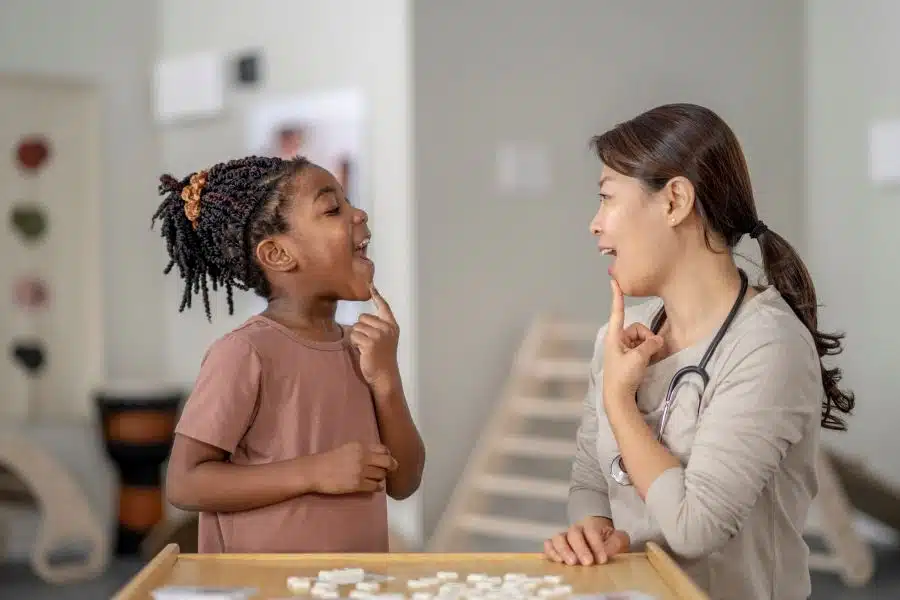
What if your child could read before they could even speak in full sentences? Many parents would see this as a remarkable gift—but what happens when their child struggles to understand the words they read or connect with others socially? Hyperlexia, a condition often linked to autism, presents a unique challenge: an advanced ability to […]
Helping Your Child Increase Two-Word Phrases at Home
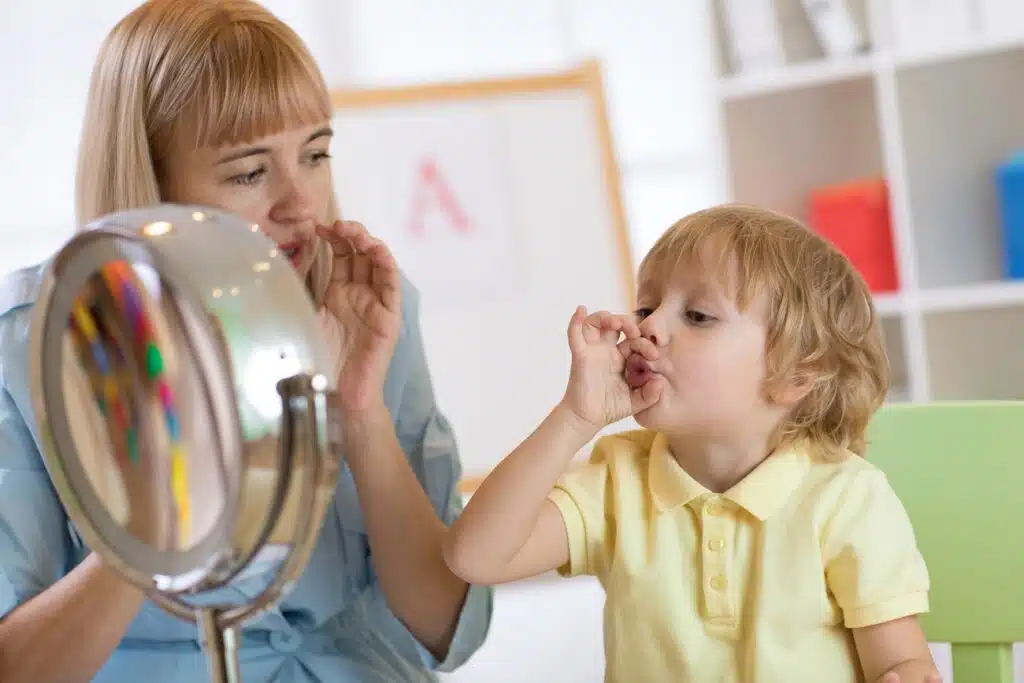
By Tiare Coker MS, CCC-SLP As your child transitions from using single words to forming two-word phrases, they may need some extra support. This is a crucial step in language development, and there are several ways you can encourage and practice this skill at home. Here are five effective strategies to help your child make […]
How Playtime Can Boost Your Child’s Speech and Language Skills
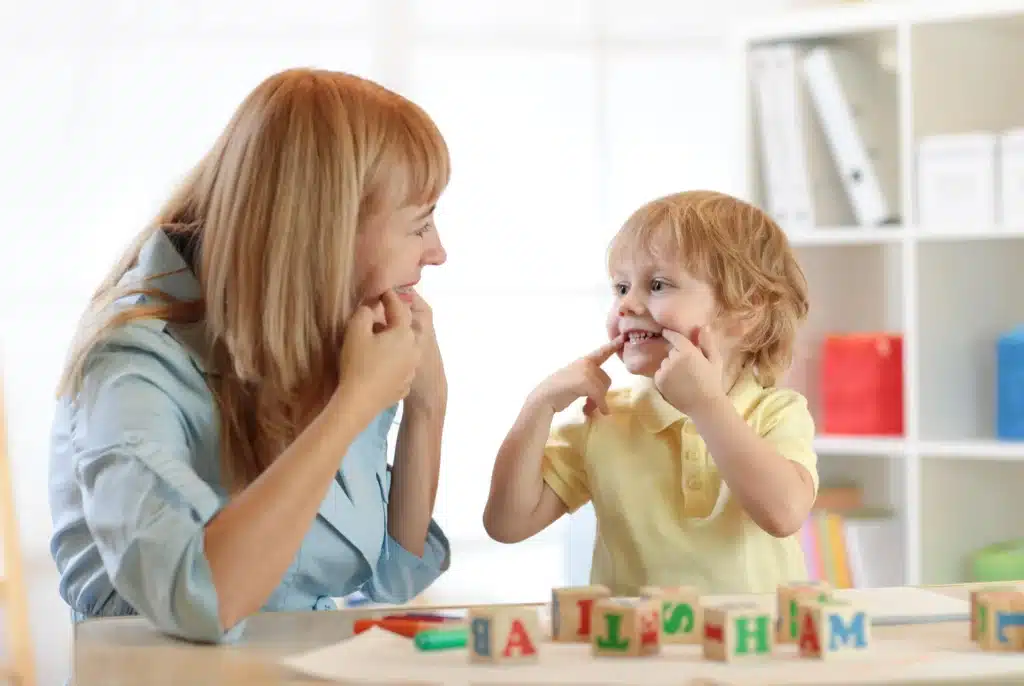
ContentsThe Power of PlaytimeWhy Playtime Matters for Speech and Language DevelopmentHow Play Boosts Specific Language Skills1. Vocabulary Building2. Sentence Formation3. Social Interaction4. Understanding and Following InstructionsPractical Playtime Strategies to Support Speech Development1. Narrate Everyday Activities2. Use Songs and Rhymes3. Incorporate Sensory Play4. Encourage Pretend Play5. Ask Open-Ended QuestionsCommon Challenges and How to Address ThemChallenge 1: […]
3 Tips for Incorporating AAC Into Your Daily Routines
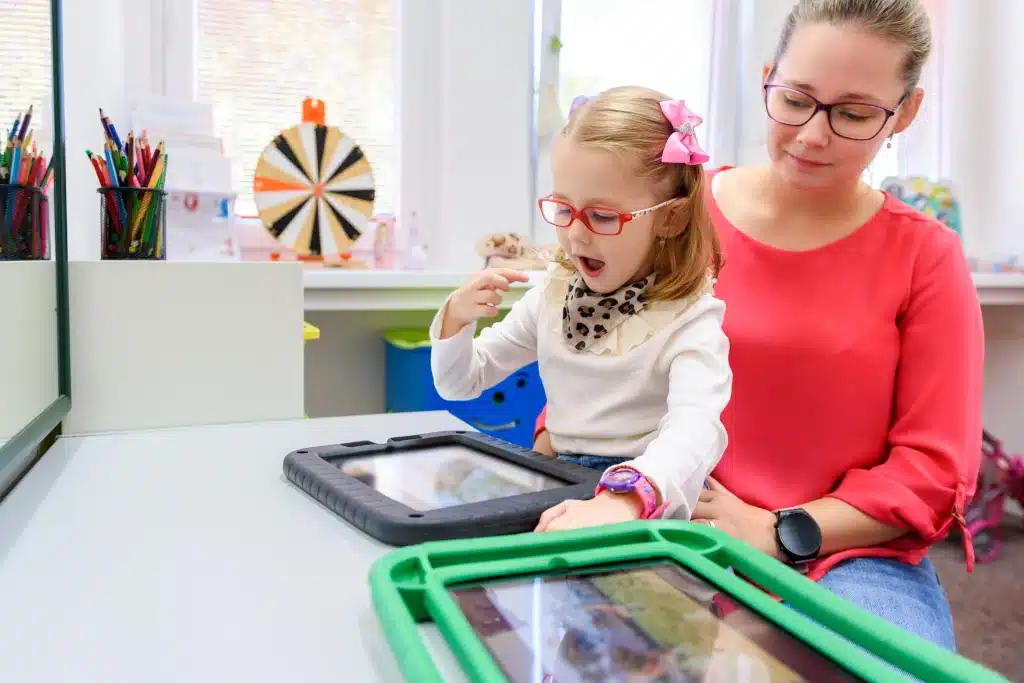
By Cheyenne Yiu MS, CF-SLP October is AAC Awareness Month! AAC stands for Alternative and Augmentative Communication. It includes any form of communication other than spoken language, including writing, sign language, pictures, gestures, facial expressions, communication boards (also called core boards), and speech-generating devices such as an iPad. We all use AAC on a daily […]
Spotting and Preventing Torticollis: Tips for Parents
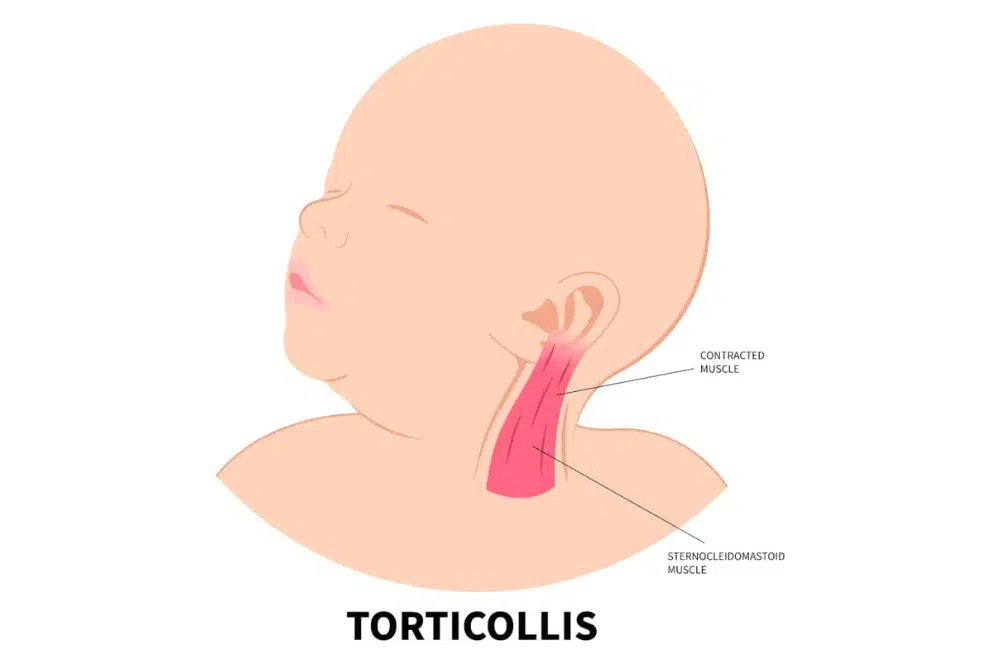
By Francesca Resurreccion PT, DPT What is Torticollis? Torticollis is a condition in which an infant’s head is tilted to one side while the chin is turned toward the opposite shoulder. Oftentimes, the main culprit for Torticollis is the sternocleidomastoid muscle (SCM)—this muscle’s function is to bring your ear towards your shoulder to the same […]
Music and Speech Therapy
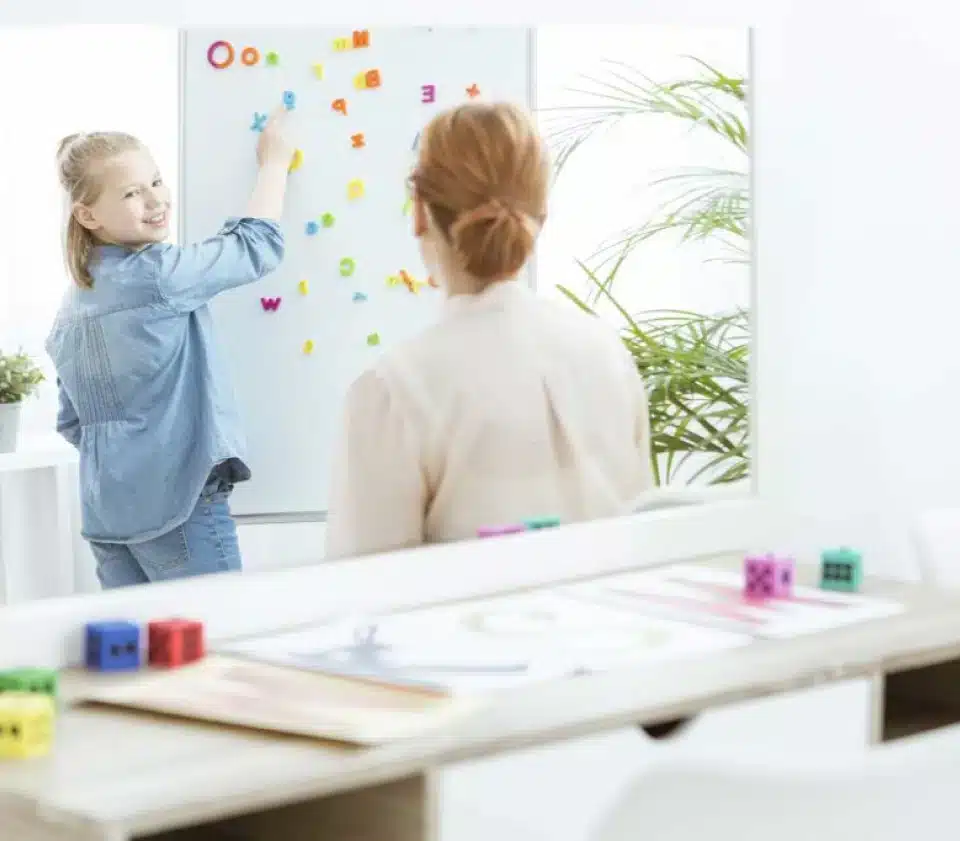
By Pranali Shah MS, CF-SLP Music can be an extremely beneficial treatment for speech therapy. Music activates all areas of the brain simultaneously. For children, music can promote language development, improve speech production, improve memory and spatial-temporal learning. According to the American Music Therapy Association: “Music therapy is an evidence-based, allied health profession that uses […]
What is Childhood Apraxia of Speech (CAS)?
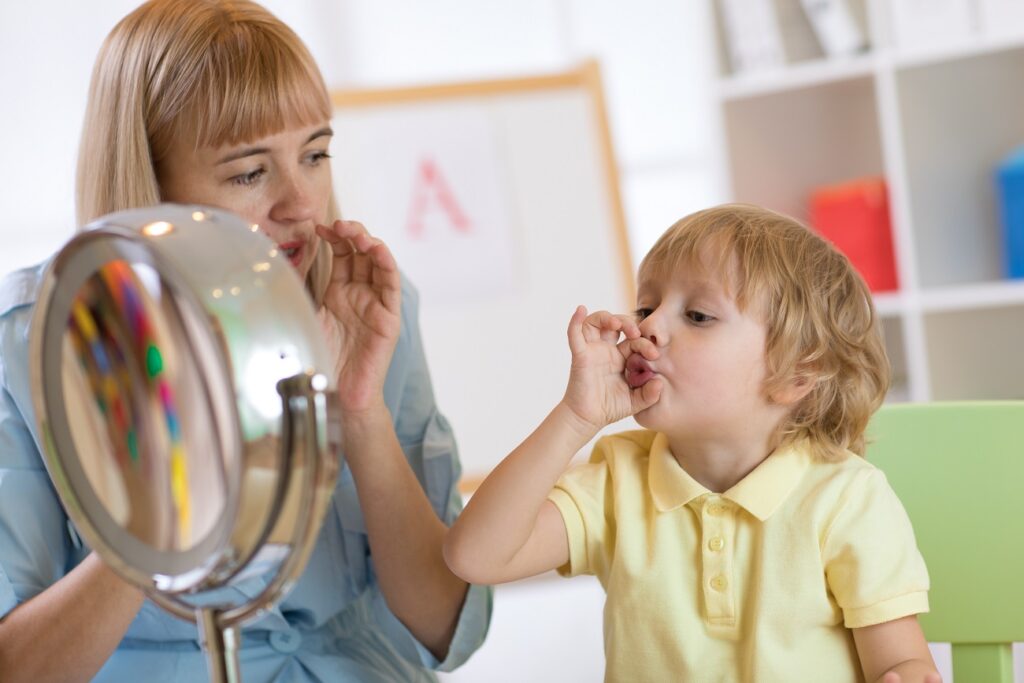
By: Madison Gwizdalski MS, CCC-SLP May is Apraxia Awareness Month and we would like to use it to bring awareness of childhood apraxia of speech to families, including what resources there are if your child gets this diagnosis! Here are some common questions and misconceptions that hear regarding Childhood Apraxia of Speech (CAS): What is […]
Understanding Your Child’s Language Development Journey

By: Rena Mkhitaryan, MS CCC-SLP Language development is an integral and natural aspect of your child’s growth. Just as each child has a unique personality, their path to language mastery may also vary. Some children adopt a Gestalt Language Processing (GLP) approach, where they absorb and use language in large, meaningful chunks. Others may demonstrate […]
What is Augmentative and Alternative Communication (AAC)?
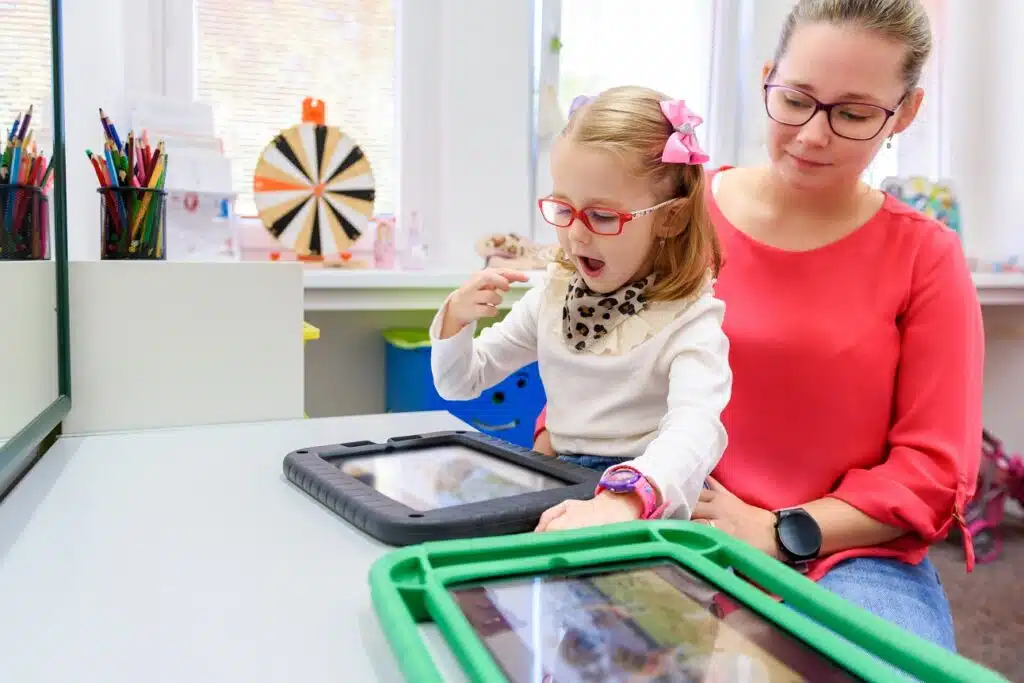
By Rouzan Dishoian, MS, CCC-SLP Communication is a fundamental aspect of human interaction. For some individuals, articulating their thoughts verbally may pose a challenge. This is where Augmentative and Alternative Communication (AAC) comes into play, offering a lifeline to those facing communication challenges. What does AAC stand for? Augmentative and Alternative Communication AAC encompasses all […]